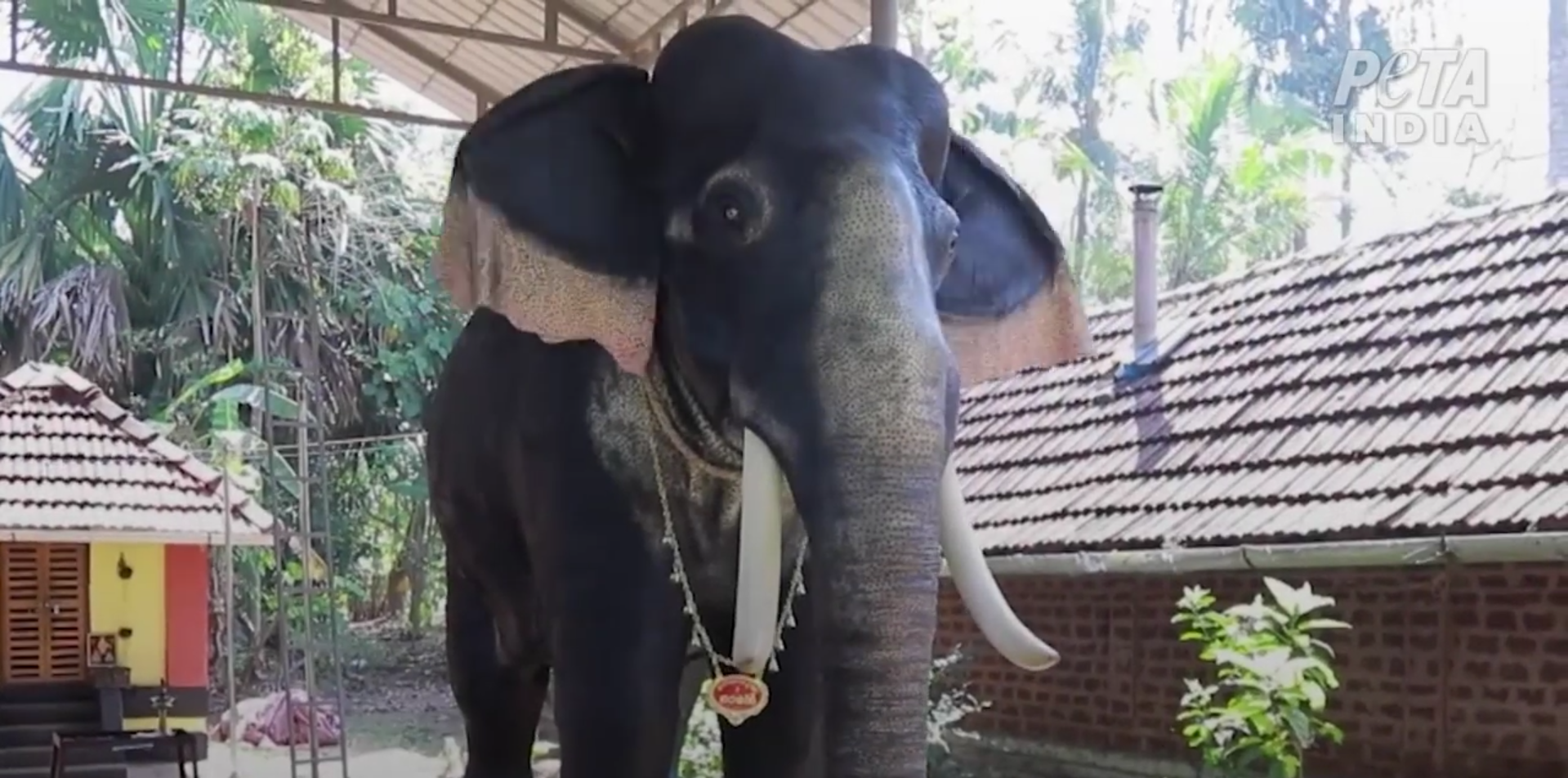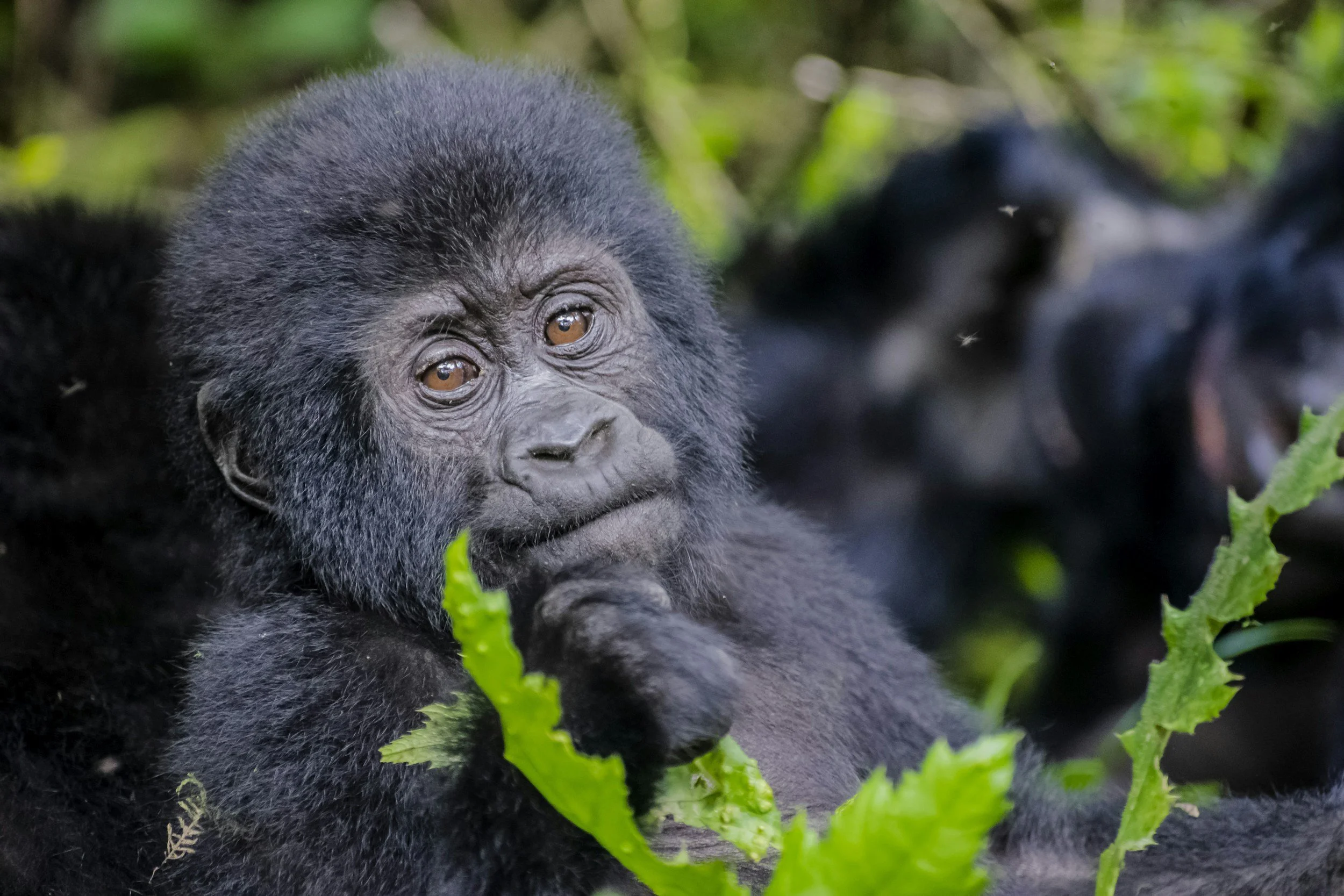This Robot Elephant Could Replace India’s Captive Temple Elephants
Amid animal welfare concerns and hundreds of human deaths caused by temple elephants, one temple is now welcoming a mechanical elephant as an innovative and ethical alternative.
The robotic elephant. Credit: PETA India
A temple in India has welcomed a life-size robotic elephant to take part in its religious ceremonies.
So-called ‘temple elephants’ are common throughout India, where the captive animals are used in rituals such as receiving offerings from devotees and walking in processions.
However, their use at temples has been the source of much controversy, with frequent concern about elephant welfare, and also the issue of elephants being poached from the wild.
Now, the Irinjadappilly Sree Krishna Temple has introduced an innovative and ethical alternative in the form of a realistic mechanical elephant that can fulfil the role of a temple elephant - without keeping a ‘real’ animal in captivity.
Credit: PETA India
The robotic elephant, named Irinjadappilly Raman, was donated to the temple by People for the Ethical Treatment of Animals (PETA) India with the help of award-winning Indian film actor Parvathy Thiruvothu.
Measuring 10 feet 6 inches, PETA India says that Raman will help conduct ceremonies at the temple in a safe and cruelty-free manner, and support real elephant’s rehabilitation from captivity.
An inaugural ceremony was held last week to introduce the new elephant at the temple, which is located in the southern Indian state of Kerala.
“We are extremely happy and grateful to receive this mechanical elephant which will help us to conduct our rituals and festivals in a cruelty-free way”, said the head priest of the temple, Rajkumar Namboothiri.
It is believed to be the first temple in the country to welcome a mechanical elephant as an ethical alternative to a traditional live elephant. “We hope that other temples will also think about replacing live elephants for rituals”, added Namboothiri.
The Dangers of Temple Elephants
Most captive elephants in the country, including in Kerala, are being held illegally or have been transported to a different state without permission, according to PETA India. Elephants used in captivity are trained through punishments, beatings, and the use of the bullhook - a weapon with a metal-tipped hook. This severe training eventually results in the elephants obeying human commands, so that the animals can be used for rides, ceremonies, and to perform tricks.
Temple elephants like the one pictured are common throughout India.
Health problems are common in captive elephants. It is reported that many have painful foot ailments and leg wounds from being chained to concrete floors for long periods of time, and most do not get adequate food, water, or veterinary care.
Elephants do not cope well in captivity, and the animals frequently develop and display abnormal and dangerous behaviours. In the state of Kerala alone, 526 people were killed by captive elephants over a 15-year period, as reported in the Heritage Animal Task Figures.
One of the most often used elephants in Kerala’s festival circuit, Thechikkattukavu Ramachandranhas, has been kept in captivity for around 40 years and has reportedly killed 13 individuals: six mahouts (elephant handlers), four women, and three elephants.
We Have A Favor To Ask…
Species Unite amplifies well-researched solutions to some of the most abusive animal industries operating today.
At this crucial moment, with worldwide momentum for change building, it’s vital we share these animal-free solutions with the world - and we need your help.
We’re a nonprofit, and so to keep sharing these solutions, we’re relying on you - with your support, we can continue our essential work in growing a powerful community of animal advocates this year.
More stories:
Species Unite
A collection of stories of those who fight the good fight on behalf of animals.






A judge has issued Pennsylvania’s first habeas corpus order for a nonhuman animal, advancing NhRP’s fight to move five African elephants from the Pittsburgh Zoo to a sanctuary.